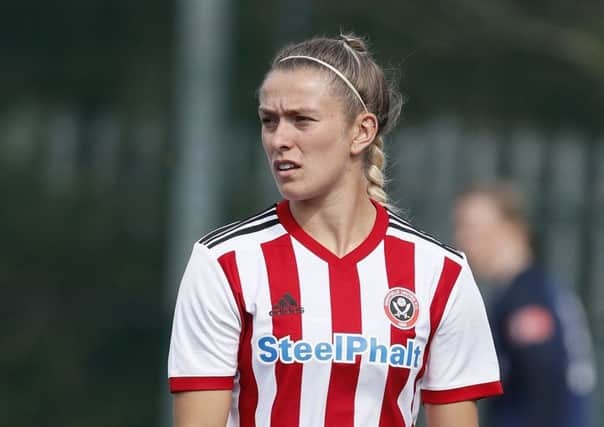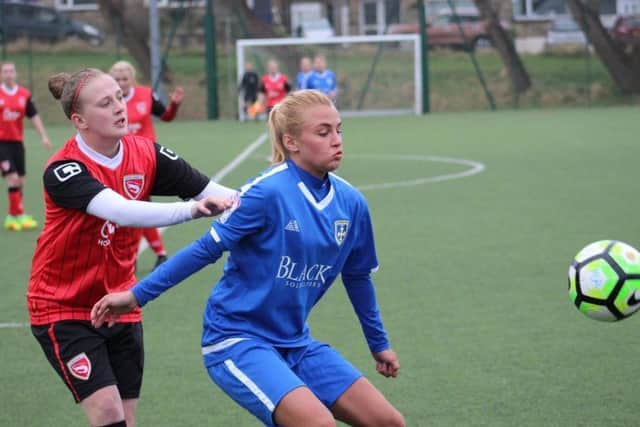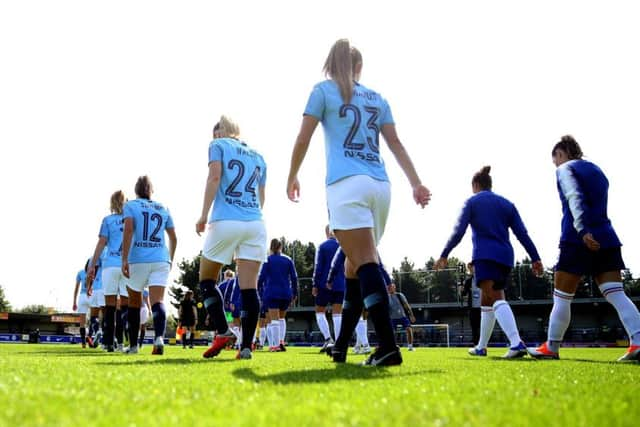Women's football united in bid to close the gap and develop its own talent pool


The equivalent fixture between the respective clubs’ women’s teams in the new professional era of the Women’s Superleague on Sunday attracted an attendance of 2,501.
If those numbers emphasise the size of the gap that needs closing, then a more encouraging statistic is the amount of clubs and people trying to narrow the divide. Namely the 11 clubs who make up the professional top tier and the eight teams from Yorkshire who ply their trade in the next two divisions.
Advertisement
Hide AdAdvertisement
Hide AdSheffield United Women are the highest-placed of the White Rose octet, competing in the Women’s Championship following their promotion to the second tier last season.
A further seven teams; Bradford City, Doncaster Rovers Belles, Guiseley Vixens, Huddersfield Town, Hull City, Middlesbrough and Sheffield compete at the third level of the pyramid, the FA Women’s National League.
This strong regional presence is viewed as huge positive for the game, raising the bar in competition, and – hopefully – attracting bigger audiences.
“This broad representation is really good,” said Lee Walshaw of Sheffield United Women. “Not just for the players, but for the supporters as well. If we’re away one week they can go and find another game of a good standard, and you do get that in the women’s game. Yes people support one team, but more than anything they’re supporting women’s football.”
Advertisement
Hide AdAdvertisement
Hide AdThe sport has made huge strides in recent years. Internationally, The Lionesses finished third in the 2015 Women’s World Cup, a success that brought greater exposure to the players.


Lindsey Stephenson, general manager of Middlesbrough Women, said: “For girls to be able to look at those players and realise that they can make a career in football is huge. Two weeks ago we asked our juniors what they want to be, what inspires them? Every single one of them wanted to play football for England.”
The FA has identified the women’s game as an area of huge potential and has invested in improving the infrastructure and encouraging new talent.
And Yorkshire clubs are reporting increased participation, especially at youth level. Sheffield’s United’s Walshaw added: “We’re looking to give the girls a pathway to the first team, so they’ve got a vision, just as the boys would. Kyle Walker came to us as an eight-year-old and went on to play for the first team and then England. Girls now have that opportunity.”
This investment has also improved the standard of play.
Advertisement
Hide AdAdvertisement
Hide Ad

Lee Johnson, head coach of Hull City Ladies, said: “If there’s more people playing the game then naturally you’re getting better players. The quality of coaching is better, and you’re seeing more young females coaching within the sport.”
But there are concerns. Financially, clubs outside Superleague struggle. Rovers Belles dropped out of the second tier due to financial reasons.
There is also the issue of low crowds, not helped by the switch from a summer to a winter season, meaning the women’s game now competes with the men. Sally Thackray, chair of Bradford City Women, said: “It’s a problem we’re trying to address. But you’re trying to tap into the men’s market, and people who watch football on Saturday may not want to come on a Sunday.”